Disclosure: This article contains affiliate links. We may earn a commission from purchases at no extra cost to you, which helps our travel content.
There's something about Auckland that reminds me of home—not Philadelphia where I currently live, but Halifax where I grew up. Maybe it's the harbor views or the way the city embraces both urban energy and natural wonder. But unlike my Canadian homeland, Auckland carries an ancient energy I felt immediately upon arrival. As an EMT with Mi'kmaq roots, I'm always searching for places that heal both body and spirit. After a particularly grueling shift in the ER last winter, I booked a spontaneous trip to Aotearoa (the Māori name for New Zealand), seeking restoration in a land where indigenous wisdom still pulses beneath modern development. What I discovered was a city pioneering sustainable tourism while honoring traditional knowledge—a perfect reflection of my own journey blending emergency medicine with ancestral healing practices. This guide shares the eco-friendly accommodations that transformed my Auckland experience from a simple vacation into a holistic reset.
Urban Treehouses: The Canopy Eco Lodge
Nestled on the edges of the Waitākere Ranges just 30 minutes from downtown Auckland, The Canopy Eco Lodge offers what might be my favorite accommodation experience worldwide. These aren't your childhood treehouses—they're architectural marvels built using reclaimed timber and powered entirely by solar energy.
My unit, suspended among ancient kauri trees, featured floor-to-ceiling windows that eliminated any boundary between indoor comfort and the surrounding forest. The first morning, I woke to a tūī bird perched on my balcony, its distinctive song pulling me from dreams. The owners, Māori-Scottish couple Kiri and James, have infused traditional Māori concepts of kaitiakitanga (guardianship of the environment) into every aspect of the property.
The composting toilets might intimidate some travelers, but they're immaculately maintained—and frankly, as someone who's handled far worse in ambulances, I can assure you they're completely odorless. Each treehouse comes equipped with a rainwater shower filter that infuses your shower with essential minerals while removing chlorine and other chemicals.
What truly elevated my stay was the property's edible garden, where guests are encouraged to harvest ingredients for their meals. As someone who's documented countless food trucks across North America, I appreciate how the simple act of picking your own herbs connects you to place in ways restaurant dining rarely achieves. The communal outdoor kitchen became my evening sanctuary, where I'd prepare simple meals while exchanging stories with fellow travelers under southern stars.

💡 Pro Tips
- Request Treehouse 3 for the best sunrise views over the harbor
- Pack lightweight natural fiber clothing as the treehouses can get warm during summer afternoons
- Participate in the weekly forest bathing sessions led by Kiri—they incorporate traditional Māori breathing techniques that I still use during stressful ER shifts
Harbourside Eco-Apartments: The Maritime Collective
For travelers preferring urban proximity, The Maritime Collective offers waterfront sustainability without sacrificing convenience. Located in Wynyard Quarter, these converted shipping container apartments demonstrate how industrial materials can be transformed into luxurious, eco-conscious living spaces.
I spent three nights in their 'Tangaroa Suite' (named after the Māori god of the sea), where the clever design maximized the compact space without ever feeling cramped. The building operates on a closed-loop water system, recycling greywater for toilet flushing and garden irrigation. Each apartment features walls insulated with wool from New Zealand sheep farms and furnishings crafted from ocean plastic collected during local beach cleanups.
The rooftop garden supplies the in-house café, where I became addicted to their kawakawa tea—a traditional Māori remedy that eased my chronic shoulder tension from years of lifting patients. As someone who's worked many overnight shifts, I particularly appreciated the blackout curtains made from recycled materials and the natural sleep aid provided in each room.
What makes The Maritime Collective truly special is their commitment to the harbor ecosystem. Guests can join weekly kayak excursions to collect water quality data that contributes to local conservation efforts. During my paddle, I spotted a family of little blue penguins near Devonport—a wildlife encounter I hadn't expected in a city harbor. The property's location also means you're within walking distance of Auckland's best restaurants, though I often found myself drawn to the nearby food truck collective where local vendors serve sustainable seafood caught that same morning.

💡 Pro Tips
- Book rooms ending in odd numbers for harbor views
- Download their custom app which tracks your resource usage and rewards conservation with vouchers for local eco-businesses
- Request a free bicycle rental to explore the waterfront path that connects to downtown Auckland
Off-Grid Tiny Homes: Papatūānuku Retreat
Named after the Māori earth mother, Papatūānuku Retreat offers the most immersive eco-experience on Auckland's outskirts. Located on a regenerative farm in Clevedon, about 45 minutes from the city center, these hand-built tiny homes represent sustainable living at its most authentic.
As someone with mixed indigenous heritage, I was immediately drawn to how the retreat integrates Māori design principles with modern sustainability. Each tiny home is oriented according to sacred geometry that maximizes both solar gain and connection to significant landscape features. My unit, 'Korimako' (named after the bellbird), was positioned to frame the sunrise over Hauraki Gulf while sheltering naturally from prevailing winds.
The homes are built from locally-milled macrocarpa timber and feature sheep's wool insulation that kept me comfortable despite visiting during early spring when temperatures fluctuated dramatically. The composting toilets feed the property's extensive food forests, completing a nutrient cycle that epitomizes regenerative living.
What surprised me most was how the technological minimalism enhanced my stay. Without WiFi or television (though there is limited solar power for charging essentials), I found myself sleeping according to natural rhythms for the first time since my wilderness EMT training in the Rockies. I'd highly recommend packing a solar lantern for evening reading and predawn walks to the property's natural swimming pond.
The retreat offers daily workshops on traditional food preservation, medicinal plant identification, and natural building techniques. As someone who's witnessed how disconnection from nature impacts physical health in my EMT work, these hands-on experiences felt genuinely therapeutic. I still use the kawakawa balm I made during one workshop to treat minor burns and scrapes in my first aid kit.

💡 Pro Tips
- Bring a journal—the absence of digital distractions creates space for reflection that's rare in modern travel
- Pack layers regardless of season—the natural ventilation means indoor temperatures fluctuate with outside conditions
- Participate in the Thursday night hangi feast, where traditional Māori cooking methods are used to prepare farm-harvested ingredients
Boutique Eco-Hotels: The Kauri Collective
For travelers seeking the amenities of a traditional hotel with genuine sustainability credentials, The Kauri Collective in Ponsonby offers the perfect balance. This 24-room boutique property occupies a meticulously restored heritage building that once housed a maternity hospital in the early 1900s.
As a healthcare worker, I appreciated how the renovation honored the building's healing history while incorporating state-of-the-art sustainability features. The hotel operates on 100% renewable energy, with rooftop solar panels supplying most of their needs. Each room features wool carpeting that naturally purifies air quality—something my EMT-trained nose immediately noticed upon entering.
The beds deserve special mention—handcrafted from fallen kauri trees (never harvested living trees) and topped with organic New Zealand wool mattresses that eliminated the back pain I typically experience while traveling. I actually looked into shipping one home before realizing the carbon footprint would defeat the purpose! Instead, I purchased their organic wool pillow which packs down surprisingly well in luggage and has improved my sleep quality back home.
The hotel's restaurant, Rākau, serves exclusively plant-based cuisine with ingredients sourced from urban gardens within a 5-kilometer radius. Their mushroom and kawakawa risotto might be the best meal I had in Auckland—and I'm saying that as someone who's documented food trucks across two continents.
What truly sets The Kauri Collective apart is their cultural programming. The property employs a cultural liaison who arranges authentic connections with local Māori communities—not performative tourism, but genuine knowledge exchange. Through their introduction, I participated in a medicinal plant walk that reminded me of learning about healing herbs from my Mi'kmaq grandmother, creating a profound cross-cultural connection I hadn't anticipated.

💡 Pro Tips
- Request rooms on the eastern side for morning light and quieter evenings
- Book the rooftop yoga sessions that incorporate traditional Māori movement practices
- Ask the concierge about their partnership with local food rescue organizations—guests can join daily redistribution routes
Māori-Owned Eco Lodges: Te Whare Tāne
My most meaningful accommodation experience came at Te Whare Tāne (House of the Forest), a Māori-owned eco-lodge on the western edge of the Waitākere Ranges. While technically just outside Auckland's boundaries, it's only a 40-minute drive from the city center and offers an immersion into indigenous hospitality that transformed my understanding of sustainable tourism.
Unlike properties that appropriate indigenous aesthetics, Te Whare Tāne operates under authentic Māori guardianship with profits supporting local conservation and cultural revitalization. The main lodge and surrounding cabins were constructed using traditional building techniques alongside modern sustainable technologies—a fusion that resonated with my own journey blending indigenous wisdom with contemporary medical practice.
My cabin featured hand-carved panels depicting the story of Tāne Mahuta, the god of forests who separated earth and sky in Māori creation stories. The property uses a gravity-fed water system from a protected spring, and electricity comes from a micro-hydro system on the property's stream. Meals incorporate traditional Māori ingredients harvested according to seasonal protocols that ensure regeneration.
What distinguished this stay was the cultural immersion. Rather than treating Māori traditions as entertainment, the hosts integrated visitors into everyday practices. I joined morning karakia (prayers) that reminded me of my grandmother's dawn rituals, learned about rongoā (traditional medicine) that paralleled some of the emergency field techniques we use in wilderness rescue, and participated in flax weaving that connected me to generations of indigenous craftspeople across continents.
The night forest walks were particularly powerful—navigating trails without flashlights, relying instead on traditional wayfinding techniques and the natural bioluminescence of local fungi. After years of working under harsh hospital lights, this reconnection with natural darkness cycles was profoundly healing. I've since incorporated similar darkness practices into my recovery routine between emergency shifts.
For travelers seeking authentic engagement with Māori culture and environmental stewardship, Te Whare Tāne offers an experience that transcends typical accommodation. Just be sure to book well in advance—they limit guests to ensure quality experiences and minimal environmental impact.

💡 Pro Tips
- Learn basic Māori greetings before arriving—this small effort is deeply appreciated by hosts
- Participate in the optional forest restoration project during your stay—it creates a lasting connection to the land
- Bring a waterproof journal for the outdoor workshops that often continue regardless of weather
Final Thoughts
Auckland's sustainable accommodations offer far more than places to sleep—they provide portals into New Zealand's commitment to environmental stewardship and cultural preservation. As someone who witnesses daily how our disconnection from nature impacts physical and spiritual health, these eco-stays represent a vital healing opportunity for modern travelers. Whether you choose an urban treehouse, harbourside container apartment, off-grid tiny home, heritage eco-hotel, or Māori-owned lodge, you'll experience Auckland through a lens that honors both ancestral wisdom and forward-thinking sustainability. The next time your spirit needs restoration, consider how these mindful accommodations might transform your journey from simple tourism into holistic healing. After all, the most meaningful souvenirs are the sustainable practices we incorporate into our lives long after returning home—something I'm grateful to carry from Auckland back to my emergency room shifts in Philadelphia.
✨ Key Takeaways
- Auckland offers diverse eco-accommodation options from urban to rural settings, all within an hour of the city center
- The most authentic sustainable stays incorporate Māori concepts of environmental guardianship rather than just technological solutions
- Booking directly with properties often provides access to cultural experiences not available through major booking platforms
📋 Practical Information
Best Time to Visit
year-round, though February-April offers ideal weather with fewer tourists
Budget Estimate
$150-300 NZD per night for most eco-accommodations
Recommended Duration
7-10 days to experience multiple property types
Difficulty Level
Easy

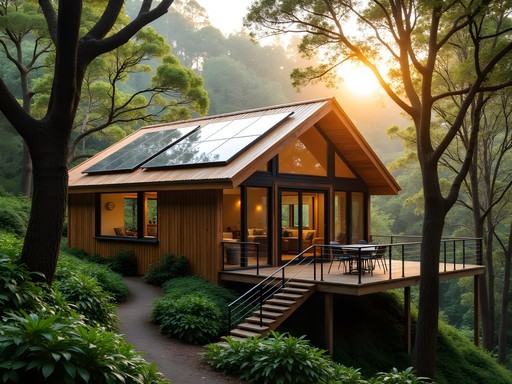







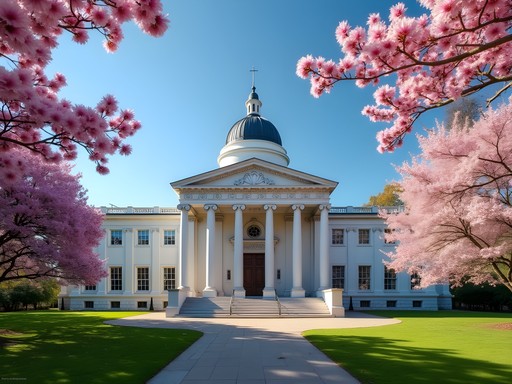
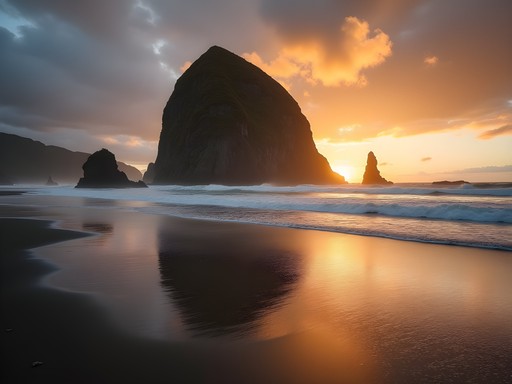
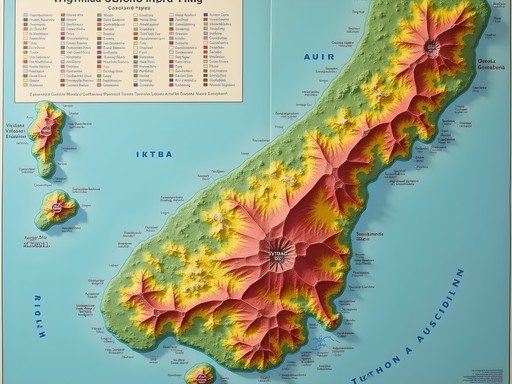
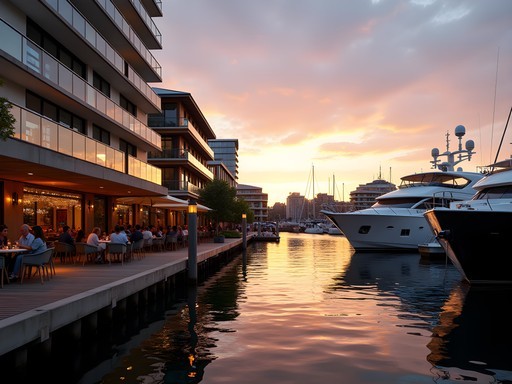

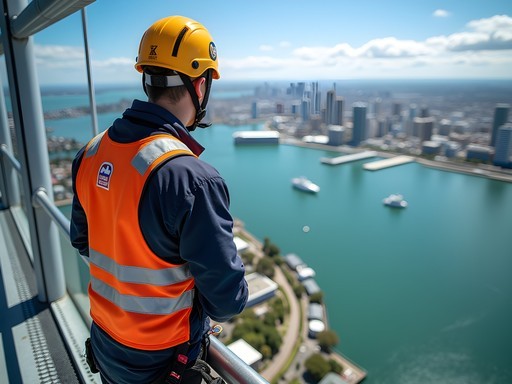

Comments
globezone
How far are these from the airport? Flying in late and wondering about transport options
Sage Dixon
Maritime Collective is closest—about 25 min by Uber. Papatūānuku Retreat is about 45 min north. I'd recommend staying closer to the city your first night if you're arriving late!
globezone
Perfect, thanks!
Jean Wells
I appreciate the thorough breakdown of each property's sustainability practices. The Maritime Collective particularly caught my attention—I've been researching accommodations that prioritize greywater recycling and solar energy for an upcoming trip. One question: did you find that these eco-properties were significantly more expensive than conventional hotels in Auckland? I'm trying to balance my environmental commitments with budget constraints for a three-week South Island itinerary I'm planning. Also curious if any offered long-term stay discounts.
Sage Dixon
Great question Jean! The Maritime Collective was actually mid-range pricing, comparable to standard hotels. The Canopy Eco Lodge was definitely premium but worth it. Most offered weekly discounts—definitely ask when booking directly!
Amit Sullivan
Sage, this really captures something essential about Auckland that even we Wellingtonians sometimes overlook. Your comparison to Halifax is spot-on—there's that same maritime soul underneath the modern city. I stayed at The Maritime Collective last year while covering the anniversary of the America's Cup, and what struck me most wasn't just the solar panels or the rainwater systems, but how the staff spoke about kaitiakitanga—guardianship of the land and sea. It's woven into the Māori worldview, and these eco-accommodations are finally catching up to what indigenous communities have known for centuries. The breakfast at Maritime used ingredients from community gardens in Ponsonby. Small detail, but it tells you everything about their commitment.
redbackpacker
this looks amazing! quick question - do these places book up fast? planning auckland for maybe april and not sure if i should book now or wait
Amit Sullivan
Book the Papatūānuku Retreat sooner rather than later if that's the one calling to you. The off-grid tiny homes are quite popular with overseas visitors, especially during our autumn months (your spring). The Kauri Collective usually has better availability.
redbackpacker
awesome thanks! yeah the tiny homes look perfect
sunnydiver
The Canopy Eco Lodge looks amazing! Adding to my list
globezone
Did you end up booking it? Trying to figure out how far in advance to reserve
sunnydiver
Not yet but probably will for April. Seems popular so don't wait too long!
beachtime
Just got back from Auckland and stayed at the Papatūānuku Retreat tiny homes! Such an amazing experience being off-grid but still only 30 mins from downtown. The composting toilet took some getting used to (haha) but the staff were super helpful explaining everything. We took a workshop on traditional Māori plant medicine while there which wasn't mentioned in your post but was definitely a highlight. The tiny home had these amazing floor-to-ceiling windows facing the native bush that made it feel way bigger than it was. Totally recommend for anyone wanting to disconnect but not go full wilderness mode.
vacationdiver
How was the wifi situation there? Need to stay connected for work but really want the eco experience!
beachtime
They have solar-powered wifi in the main lodge area but spotty in the tiny homes. Perfect excuse to unplug! 😉
vacationdiver
Those treehouses at Canopy Eco Lodge look amazing! Adding this to my bucket list for sure.
beachtime
I stayed there last month! The views of the city at night are incredible. Just bring warm clothes if you go in winter - very eco-friendly heating lol
Douglas Bradley
Fantastic breakdown of Auckland's eco-accommodations, Sage! I stayed at The Kauri Collective last year while researching New Zealand's sustainability initiatives, and their commitment to zero waste was impressive. The rainwater harvesting system they've implemented is actually more sophisticated than similar setups I've seen in Costa Rica. One thing travelers should know is that these eco-stays often provide excellent guidance for exploring nearby nature reserves with minimal impact. The Maritime Collective staff directed me to some lesser-known coastal walks that weren't in my guidebook that really showcased Auckland's volcanic coastline.
beachtime
Did The Kauri Collective have those locally-sourced breakfast baskets? I've heard about them but wondering if they're worth the extra cost?
Douglas Bradley
Absolutely worth it! Everything was organic and from within 50km of Auckland. The manuka honey alone was worth the price - completely different from what we get in North America.
freezone
Just got back from staying at The Maritime Collective! Those harbor views are even better in person. The recycled timber furniture is actually super comfortable and the staff taught us how to use their food waste composting system. My favorite part was the rooftop garden where they grow herbs for the communal kitchen. Pro tip: book the east-facing rooms for amazing sunrise views over the harbor, totally worth setting an alarm for!
Jean Wells
The Maritime Collective's rooftop garden is indeed exceptional. Did you participate in their weekly guest gardening workshop? I found it quite enlightening regarding native plant species.
freezone
Missed the workshop but did join their beach cleanup! They organize one every Saturday morning. Great way to meet other travelers and do something good.
wanderclimber
Has anyone stayed at the Papatūānuku Retreat? Wondering how truly off-grid it is and if it's still comfortable for someone not used to roughing it. The views look incredible but I'm a bit nervous about the composting toilet situation lol.
beachfan
Did it last year! Super comfy and not scary at all. The composting toilets are actually really clean and odor-free!
wanderclimber
That's reassuring! How was the solar shower situation?
beachfan
Hot water wasn't an issue at all! They have a good setup.
Venture X
Premium card with 2X miles, $300 travel credit, Priority Pass